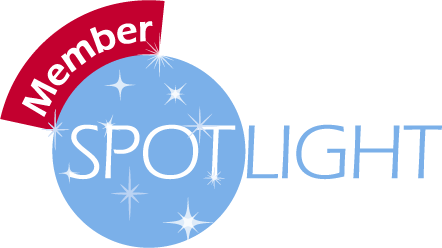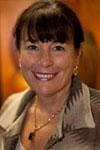ANNA Member Spotlight
 Welcome to ANNA's monthly member spotlight. ANNA is a vibrant organization because of nurses like you! Your diverse experiences and unique perspectives make us a collective whole that is a masterpiece. We are proud of the work each of you do!
Welcome to ANNA's monthly member spotlight. ANNA is a vibrant organization because of nurses like you! Your diverse experiences and unique perspectives make us a collective whole that is a masterpiece. We are proud of the work each of you do!
If you would like to be featured, participate in our online community, ANNA Connected. Members are featured in the Member Spotlight based on their engagement in ANNA Connected, so start connecting, talking, and getting to know other ANNA members via ANNA Connected.
 |
Theresa Payne, DNP, RN, FNP-CDirector of Advanced Practice |
How long have you been a nurse?
I graduated as an LVN in 1982 and RN in 1984, so I am entering my 40th year as a nurse.
How long have you been in nephrology?
I have been in practice as a full-time nephrology nurse practitioner since 2003.
What is unique about nephrology nursing?
Nephrology is a unique practice for a nurse practitioner in that we care for our patients through all stages of renal disease – from the time they are first diagnosed with chronic kidney disease (CKD) to end-stage renal disease (ESRD) and transplant/post-transplant. We truly get to know them and their significant others, and our patients get to know us as well. The rewards with your patients are tremendous. We celebrate our patients’ victories and support them to work through the challenges – all with the goal of improving their quality of life, however they define it.
What do you value most about your ANNA membership?
I cannot express enough how my membership and participation in ANNA has helped my clinical, personal, and social growth. Networking, sharing ideas, collaboration, and research have propelled not only my career but also my work relationships. Ultimately, it helps me to provide the highest level of care to my patients and their families.
Do you have a favorite patient story?
Over the years I have several patient stories; however, one of my favorites revolves around one of my patients with CKD. She was a childhood type 1 diabetic who had lost her vision due to diabetes and I first saw her in the office with CKD stage 3b. Although she was blind and lost some of her independence, it did not stop her. She became very active in the local Braille institute and worked with the Seeing Eye Foundation for support/guide dogs. She maintained her independence by facing each of her challenges head on. So, her first visit with me in the clinic involved learning more about CKD, so that she could control and change things to preserve her kidney function. She challenged me with several ideas, questions, and research for novel interventions to assist her with her CKD treatment goals. We worked together and were able to slow the decline of her native renal function for 13 years.
As her function declined, we worked on a kidney/pancreas transplant, while being managed in our office clinic. When it became apparent that kidney replacement therapy was becoming necessary, she chose an in-center hemodialysis, as she felt that although she could do peritoneal dialysis at home, she wanted to keep any further burden off her family. By the time we needed to start dialysis, she had been on the transplant list for 6 years. Knowing that she was reaching the top of the waiting list at the time, we both joked when she started in the dialysis clinic that by the time I had completed her paperwork, she would receive her transplants. Sure enough, that is what happened. I was overjoyed that after 4 months on dialysis, I received notice while rounding that she had received her kidney and pancreas transplant the day before. I now see her in the office clinic 5 years post-transplant. She is doing well and often states that after being unable to eat sweets, it just seems weird to her, but she does not miss having to do the glucose monitoring and insulin injections.
What would you tell a newly practicing nurse about nephrology nursing?
As a new nephrology nurse, the practice is different than moving into the acute hospital experience of general medicine. It promotes a connection with your patients and teams that is far closer than other practices. This allows for critical thinking, professional growth, development, and autonomy at several different levels. As with all nursing, there will be challenges, frustration, joys, and heartaches. At the end of the day, you can truly say that you have made a difference in a person’s life with ripple effects for those around that person and yourself.
What do you enjoy doing when you are not working as a nurse?
I am very involved with my family, Native American community, and my local community. My family loves boating, skiing, and wakeboarding on the Colorado river, camping and riding ATVs in Utah, along with fishing, hunting, and hiking. At home, I enjoy spending time in the garden – nothing like getting your hands dirty while watching the beautiful new life it creates in the form of flowers, plants, and fresh vegetables.
Share an interesting fact about yourself.
It is hard to believe that after almost 40 years in nursing that I did not want to be a nurse! I always say that “God had to push me through the window to get me to become a nurse. It was the best window that ever opened for me!” I was hired fresh out of high school by an ENT physician to help type his insurance forms. It was so interesting that I took a medical terminology class taught by a RN at the local community college at night school. The window opened, and the rest is history.
